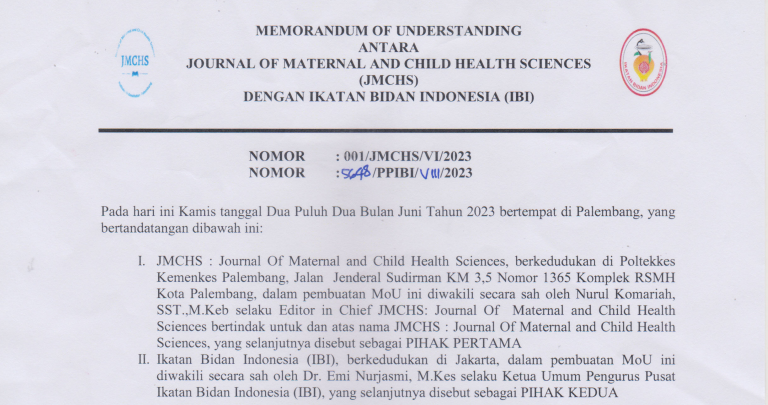Effect Of Baby Massage On Gross Motor Development In Infants Aged 0-12 Months In Maharani Baby Care Girimarto Wonogiri
Abstract
Background: Problem of developmental delays in Indonesia is still very much, even though the program to improve the quality of children is one of the government's priorities. About 30% of infants experience delays in gross motor skills. Lack of stimulation early in a child's life will stunt their emotional, social, physical and cognitive development. The problem that occurs today is that most mothers who have given birth do not massage their babies. The reason is because they don't know how to do baby massage, the benefits of baby massage and the fear of problems with the baby if the massage is wrong.
Objective: This study aims to determine the effect of baby massage on gross motor development in infants aged 0-12 months at Maharani Baby Care, Girimarto Wonogiri.
Methods: This research is a quantitative pre-experimental design study with a one group pretest-posttest design approach. The sampling technique used was probability sampling with a proportionate stratified random sampling technique with a sample of 53 infants. The research instrument used the DDST sheet. The data analysis technique used was Wilcoxon Signed Rank Test with significance level of 0.05 .
Results: The results of statistical tests with the Wilcoxon Signed Rank Test, obtained a Z value of 5.196 with a probability value (p value) = 0.000, where p value (0.000) < 0.05, these results indicate that there is a significant effect between baby massage and gross motor development. for infants aged 0-12 months at Maharani Baby Care, Girimarto Wonogiri.
Conclusion: There is an effect between baby massage and gross motor development in infants aged 0-12 months at Maharani Baby Care, Girimarto Wonogiri.
Keywords : Baby massage, gross motor development, baby.

This work is licensed under a Creative Commons Attribution-ShareAlike 4.0 International License.
Authors who publish with this journal agree to the following terms:
- Authors retain copyright and grant the journal right of first publication with the work simultaneously licensed under a Creative Commons Attribution License that allows others to share the work with an acknowledgement of the work's authorship and initial publication in this journal.
- Authors are able to enter into separate, additional contractual arrangements for the non-exclusive distribution of the journal's published version of the work (e.g., post it to an institutional repository or publish it in a book), with an acknowledgement of its initial publication in this journal.
- Authors are permitted and encouraged to post their work online (e.g., in institutional repositories or on their website) prior to and during the submission process, as it can lead to productive exchanges, as well as earlier and greater citation of published work












